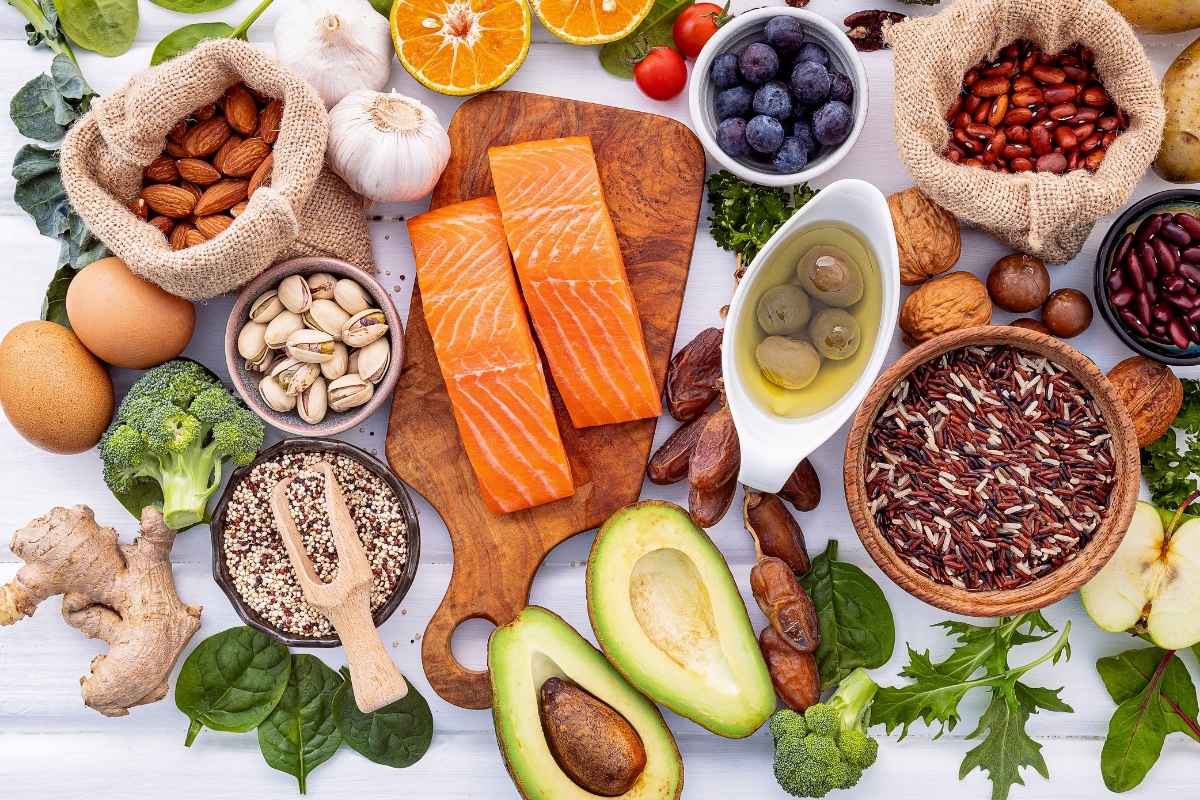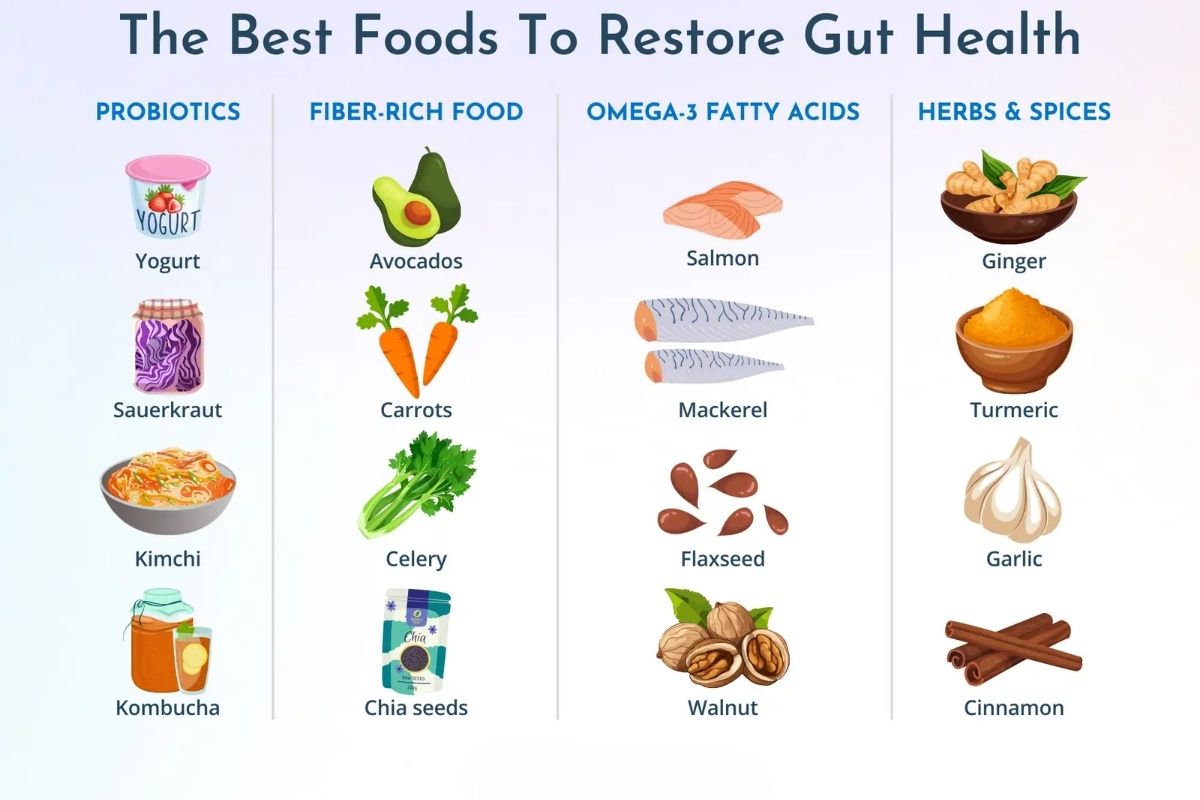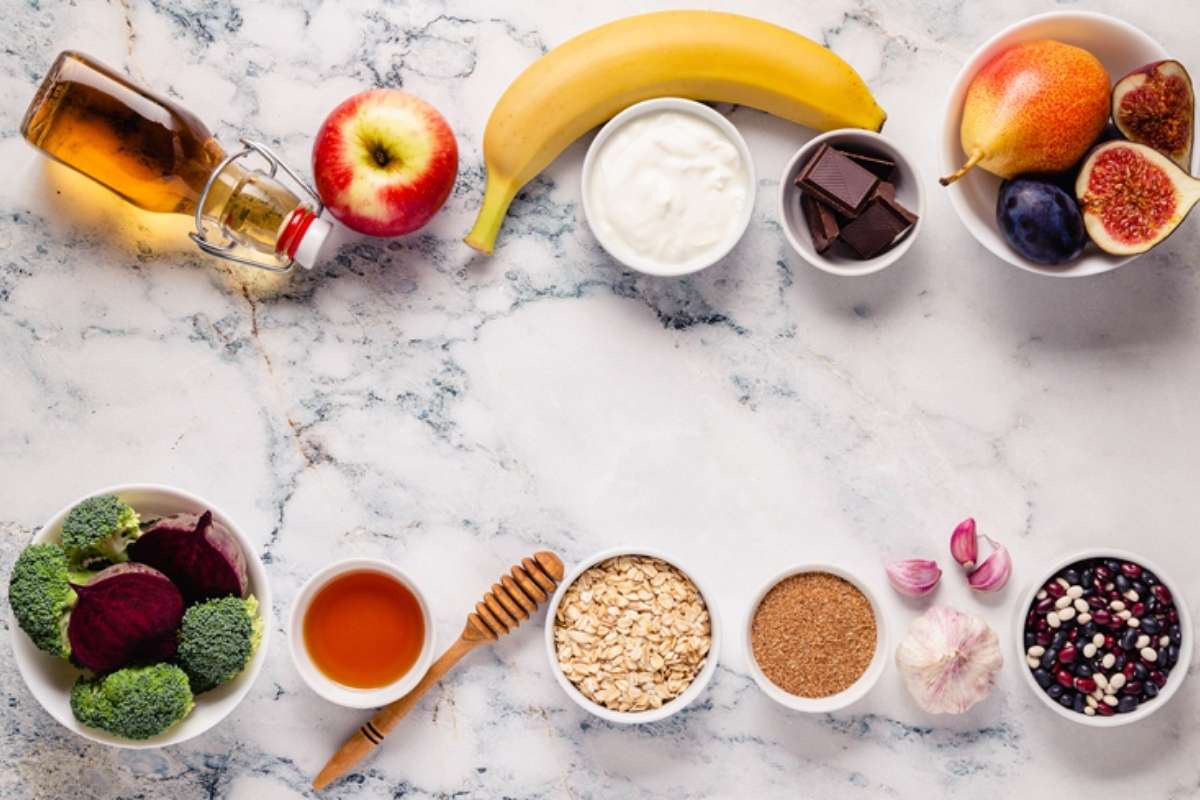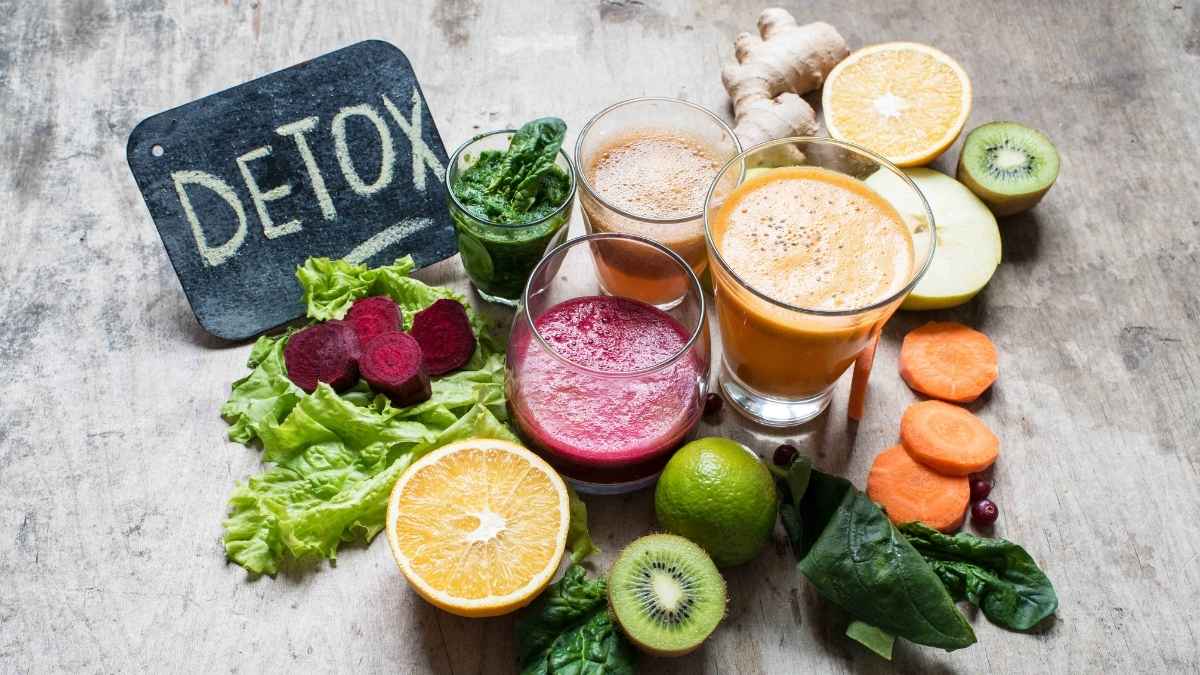A healthy gut is essential for overall well-being, affecting everything from digestion to mental health and immunity. The gut, often referred to as the “second brain,” houses trillions of bacteria that influence various bodily functions. When your gut is balanced, you experience better digestion, stronger immunity, and improved mood. However, an unhealthy gut can lead to bloating, inflammation, poor digestion, and even chronic illnesses.
In this guide, we’ll explore the best foods and practices to improve gut health naturally.

1. Understanding Gut Health
The gut microbiome consists of trillions of bacteria, fungi, and other microorganisms that help digest food, absorb nutrients, and protect against harmful pathogens. Maintaining a balanced gut flora is crucial for optimal health.
Signs of an Unhealthy Gut
- Frequent bloating and indigestion
- Constipation or diarrhea
- Unexplained fatigue
- Skin issues like acne or eczema
- Weakened immune system
- Food intolerances
- Mood swings or anxiety
If you experience these symptoms regularly, it may be time to improve your gut health.
2. Best Foods for a Healthy Gut
Eating the right foods can nourish beneficial bacteria and promote gut balance. Here are the top foods to include in your diet:
Probiotic-Rich Foods (Good Bacteria)
Probiotics are live beneficial bacteria that help balance gut flora.
- Yogurt: Choose unsweetened, natural yogurt with live active cultures.
- Kefir: A fermented dairy drink rich in probiotics.
- Kimchi: A spicy Korean dish made from fermented vegetables.
- Sauerkraut: Fermented cabbage that supports digestion.
- Kombucha: A fermented tea packed with gut-friendly bacteria.
- Miso & Tempeh: Fermented soy products that aid digestion.

Prebiotic Foods (Fuel for Good Bacteria)
Prebiotics are fibers that feed probiotics and help them thrive.
- Garlic & Onions: Contain natural prebiotics that boost gut health.
- Bananas: High in fiber and resistant starch that feeds good bacteria.
- Asparagus & Leeks: Support digestion with high fiber content.
- Oats & Flaxseeds: Excellent sources of prebiotic fiber.
Fiber-Rich Foods for Gut Motility
Dietary fiber supports healthy digestion and prevents constipation.
- Whole grains (quinoa, brown rice, oats)
- Legumes (lentils, chickpeas, beans)
- Fruits (apples, pears, berries)
- Vegetables (broccoli, carrots, spinach)
Gut-Healing Foods
These foods reduce inflammation and promote gut lining repair.
- Bone broth: Rich in collagen and amino acids that heal the gut.
- Ginger: Reduces bloating and supports digestion.
- Turmeric: Contains curcumin, a powerful anti-inflammatory compound.
3. Foods to Avoid for a Healthy Gut
Certain foods can disrupt gut balance and cause inflammation. Reduce or eliminate:
- Processed foods and fast food (loaded with preservatives and additives).
- Excessive sugar (feeds harmful gut bacteria).
- Artificial sweeteners (disrupt gut microbiota).
- Excessive dairy (can cause digestive issues for some people).
- Fried and fatty foods (difficult to digest and cause inflammation).
- Excessive alcohol (damages gut lining and kills good bacteria).

4. Best Practices to Improve Gut Health
1. Stay Hydrated
Drinking enough water helps flush out toxins and aids digestion. Aim for 8-10 glasses per day and include herbal teas like peppermint or ginger tea for added gut benefits.
2. Eat Slowly and Mindfully
Chewing food properly improves digestion and allows gut bacteria to process nutrients efficiently. Avoid eating in a rush or while distracted.
3. Manage Stress Levels
Stress negatively impacts gut health by altering gut bacteria and increasing inflammation. Try:
- Meditation and deep breathing exercises
- Regular physical activity (yoga, walking, or stretching)
- Spending time in nature
4. Get Enough Sleep
Poor sleep disrupts gut bacteria and weakens digestion. Aim for 7-9 hours of quality sleep per night.
5. Exercise Regularly
Physical activity promotes gut motility and prevents digestive issues. Try:
- 30 minutes of moderate exercise daily
- Yoga and stretching for better digestion
6. Avoid Overuse of Antibiotics
While antibiotics are sometimes necessary, overuse can kill good bacteria and cause gut imbalances. Only take antibiotics when prescribed by a doctor and replenish gut bacteria with probiotics after use.
7. Try Intermittent Fasting
Giving your digestive system a break can allow your gut to reset. Intermittent fasting (12-16 hours overnight) can improve gut function and reduce inflammation.
8. Limit Caffeine and Alcohol
Too much caffeine or alcohol can irritate the gut lining and lead to imbalances. Opt for green tea or herbal teas instead.
5. The Gut-Brain Connection: How Gut Health Affects Mental Health
Your gut and brain are closely linked through the gut-brain axis. An imbalance in gut bacteria can contribute to mood disorders like anxiety and depression.
How to Support Gut-Brain Health
- Eat a gut-friendly diet rich in probiotics and fiber.
- Reduce stress with meditation and deep breathing.
- Exercise regularly to boost serotonin (the happiness hormone).
- Prioritize sleep for better gut and mental health.
6. Supplements for Gut Health
If you struggle to get enough gut-friendly nutrients from food, consider supplements:
- Probiotic supplements: Replenish good bacteria.
- Prebiotic supplements: Help feed beneficial bacteria.
- L-Glutamine: Supports gut lining repair.
- Digestive enzymes: Aid digestion and nutrient absorption.
Final Thoughts
Improving gut health is a long-term commitment that requires the right foods, lifestyle changes, and mindful habits. By incorporating more probiotics, fiber, and anti-inflammatory foods into your diet while reducing processed foods, sugar, and stress, you can build a healthier gut and improve your overall well-being.


